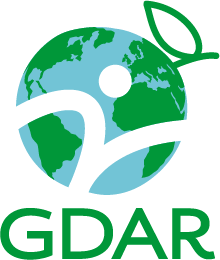Professor Vicki Lambert from the University of Cape Town’s (UCT) and GDAR has been part of spearheading the African Academic Consortium on Physical Activity for Health, which has released two policy briefs for government about physical activity.

COVID-19 has highlighted the need for a multi-faceted national plan for physical activity to underpin health development. Some of the diseases that increase the risk of individuals with COVID-19 being hospitalised or dying are the same lifestyle-related diseases associated with being physically inactive. These include diabetes, hypertension, and obesity.
Lambert, from UCT’s Research Centre for Health through Physical Activity, Lifestyle and Sports (HPALS), is spearheading the African Academic Consortium on Physical Activity for Health, with Associate Professor Rowena Naidoo from the University of KwaZulu-Natal’s College of Health Sciences.
The consortium, a group of more than 40 academics, researchers and implementation partners from nine African countries, have developed two policy briefs for government. These are part of a series planned for release. The first targets the general public and the second targets children in three environments: at home and school and in their communities.
Endorsed by the African Physical Activity Network (AFPAN), the policy briefs will guide decision makers, planners and programme leaders, during the COVID-19 pandemic and beyond.
The first two policy briefs focus on three areas:
- Addressing five major challenges to minimise the risk of community transmission during exercise. These are ensuring social distancing (2m); wearing masks (non-medical, cloth masks); exercising in small groups (outdoors, with social distancing); exercising indoors (with proper ventilation) and avoiding the use of shared equipment or sanitising in between users. These same concerns apply to children, particularly in school settings. Accompanying useful infographics can be placed in prominent locations to remind participants to exercise safely.
- Adopting a policy framework created by the World Cancer Research Fund which is aligned to the World Health Organization Global Action Plan for Physical Activity (GAPPA).
- Introducing a four-step policy recommendation for physical activity for general public in the African region.
Four-step policy recommendations
The four-step policy recommendations are:
- Developing a national plan for physical activity for health and development. This would include input from multiple sectors and stakeholders resulting in co-benefits and shared responsibility.
- Training a cadre of health professionals, educators, sports coaches and community members to promote physical activity for health. An exemplar of this is already in action with the Western Cape Provincial Government’s Western Cape on Wellness (WoW!) lifestyle programme.
- Ensuring safe and enjoyable opportunities for physical activity, through urban planning, parks or public spaces and low-cost programmes close to where people live, for safety.
- Adopting a “whole of government” systems approach towards physical activity. This would be embedded in multiple sectors, devising flexible, agile and cost-effective solutions. Critical to this – is recognizing physical activity as a vital component both in preventive health care and a means to build social cohesion in communities.
Resources
- POLICY BRIEF: Physical Activity for Health in Africa: Guidance during and beyond the COVID-19 pandemic (pdf).
- POLICY BRIEF Physical activity and health for children and adolescents in Africa: COVID-19 and beyond, for home, schools and communities (pdf)
- Physical Activity for Health in Africa webinar, held 22 September 2020
- Western Cape on Wellness
For more information, contact the UCT Press Office: www.news.uct.ac.za/mediaoffice/

